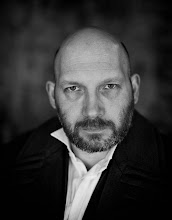 Very grandiosely, and in common with many other people in the world, I have decided that it’s time I wrote a novel. Or, perhaps more accurately, I have an idea which I think might make a novel. It’s so half formed that there’s not much point in going into it here, so let’s just say it’s a sort of gothic steampunk thing revolving around a group of young thieves and scavengers who live in an enormous railway station (now you know as much as I do).
Very grandiosely, and in common with many other people in the world, I have decided that it’s time I wrote a novel. Or, perhaps more accurately, I have an idea which I think might make a novel. It’s so half formed that there’s not much point in going into it here, so let’s just say it’s a sort of gothic steampunk thing revolving around a group of young thieves and scavengers who live in an enormous railway station (now you know as much as I do).As a result, I’ve been thinking a lot about the business of plotting recently. Ordinarily, I’m something of a free-form writer and much of my plotting is done as I go along. I usually start with an image or phrase and try and extrapolate the story from that – this usually entails moving back and forward through the story as I write, changing and tweaking and often discarding as I go along (a recently short story of mine ended up in a narrative cul-de-sac that necessitated scrapping almost 1,000 words of hard-won writing when I realized that one of the characters was totally superfluous to requirements). It isn’t perhaps the most ideal way to work but it’s the only way I know how.
However, the creation of, say, 80,000 words of fiction differs somewhat from the creation of 5,000 words. I’ve started novels before that simply disappeared under their own flimsy construction or got the point where my particular process of working could no longer sustain the narrative in any convincing way.
So… new approach called for, I reckon.
Plotting is a strange thing. As I see it, the plot of any story requires two vital elements – characters and events. Narrative springs from how you combine the two and from the smooth flow of one event into another. Or to put it another way… cause and effect.
To use a classic example from Forster’s Aspects of the Novel:
A plot is also a narrative of events, the emphasis falling on causality. "The king died and then the queen died" is a story. "The king died, and then the queen died of grief" is a plot. The time-sequence is preserved, but the sense of causality overshadows it.
Even at my most free-form, I’m always thinking about cause and effect, how the actions of one character affect the scene, how that scene determines the next, what the outcome of the events are and how they effect the characters.
In practical terms it has meant lots of thinking and lots of note taking, trying to feel my way through a story as yet unwritten, working with characters who remain faceless and nameless (although some of them are beginning to work their way through the haze and into the light).
It’s a process that I find both stimulating and frustrating at the same time, that nagging feeling that somewhere in my mind and in the recesses of my notebooks there is a story to be told, a world to be created and explored, characters to be found and understood – and an awful lot of typing to be done.



